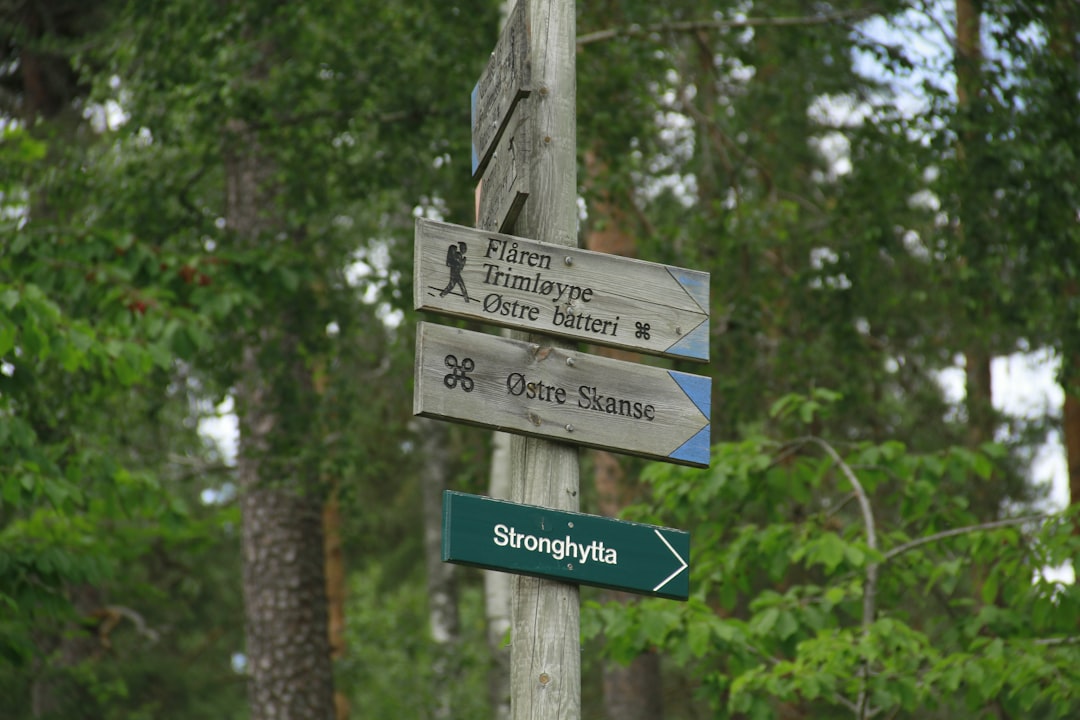Navigating the rental landscape in Norway can be a daunting task, especially for newcomers. The Norwegian Rental Deposit System is a crucial aspect of this journey, and understanding it can save you from potential pitfalls. The system is designed to protect both tenants and landlords, ensuring that deposits are handled fairly and transparently.
Typically, a rental deposit in Norway amounts to three months’ rent, which is held in a separate account to earn interest until the end of the tenancy. This structure not only safeguards the tenant’s funds but also provides landlords with a financial cushion against potential damages or unpaid rent. For those unfamiliar with the intricacies of Norwegian rental laws, the Norway Relocation Group can be an invaluable resource.
They offer guidance and support to help you navigate the complexities of renting in Norway, ensuring that you are well-informed about your rights and responsibilities. With their assistance, you can approach the rental process with confidence, knowing that you have a team of experts ready to help you every step of the way. Plan your relocation with confidence. Book a personal meeting with the Norway Relocation Group today.
Summary
- The Norwegian rental deposit system requires landlords to hold tenants’ deposits in a designated account.
- Legal requirements for rental deposits in Norway include providing a detailed inventory and condition report at the start of the tenancy.
- Common misconceptions about rental deposits in Norway include the belief that landlords can make deductions without evidence.
- Shocking reality of deposit deductions in Norwegian rentals reveals that many tenants lose money due to lack of documentation.
- Tips for protecting your rental deposit in Norway include taking photos of the property’s condition before moving in and communicating with your landlord.
Understanding the Legal Requirements for Rental Deposits in Norway
In Norway, the legal framework surrounding rental deposits is quite clear-cut. According to the Tenancy Act, landlords are required to place the deposit in a separate account, which must be designated specifically for this purpose. This account should be in the tenant’s name, ensuring that they have a claim to the funds once the tenancy concludes.
Furthermore, landlords are obligated to provide tenants with a written agreement detailing the terms of the deposit, including how it will be managed and under what circumstances deductions may be made. It is essential for tenants to be aware of these legal requirements to protect their interests. Failure to comply with these regulations can lead to disputes and potential financial loss.
The Norway Relocation Group can assist you in understanding these legalities, ensuring that you are fully aware of your rights as a tenant. Their expertise can help you navigate any complexities that may arise during your rental experience in Norway.
Common Misconceptions About Rental Deposits in Norway

Despite the clarity of the legal framework, several misconceptions about rental deposits persist among tenants in Norway. One common myth is that landlords have unlimited rights to deduct from the deposit for any perceived damage or issues. In reality, deductions must be justified and documented, and tenants have the right to contest any claims they believe are unfounded.
Understanding this aspect of the law is crucial for tenants who wish to protect their financial interests. Another misconception is that all landlords will automatically return the full deposit at the end of the tenancy if no damage has occurred. While this is often the case, it is not guaranteed.
Landlords may still attempt to make deductions for cleaning or maintenance costs that they deem necessary. Being aware of these potential pitfalls can help tenants prepare for negotiations regarding their deposits. The Norway Relocation Group can provide valuable insights into these misconceptions, helping you approach your rental situation with a clear understanding of your rights.
The Shocking Reality of Deposit Deductions in Norwegian Rentals
Many tenants are often taken aback by the reality of deposit deductions when their tenancy comes to an end. While it is expected that some deductions may occur for legitimate reasons, such as damage beyond normal wear and tear, some landlords may take advantage of this system. Reports have surfaced of landlords making excessive claims for minor issues or even attempting to charge for routine maintenance tasks that should be covered by their responsibilities as property owners.
This shocking reality can leave tenants feeling vulnerable and frustrated. It is essential to approach this aspect of renting with caution and awareness. The Norway Relocation Group can help you understand what constitutes reasonable deductions and how to prepare for potential disputes with your landlord.
Their expertise can empower you to stand your ground and ensure that any deductions made are fair and justified.
Tips for Protecting Your Rental Deposit in Norway
Protecting your rental deposit in Norway requires proactive measures and careful planning. One of the most effective strategies is to thoroughly document the condition of your rental property upon moving in. This includes taking photographs of each room, noting any existing damage or wear, and ensuring that both you and your landlord agree on these details in writing.
Having this evidence can be invaluable if disputes arise at the end of your tenancy. Additionally, maintaining open communication with your landlord throughout your stay can help prevent misunderstandings regarding the property’s condition. Regularly addressing any maintenance issues or concerns can demonstrate your commitment to keeping the property in good shape, which may discourage landlords from making unjustified deductions later on.
The Norway Relocation Group can provide further tips and resources to help you safeguard your deposit effectively.
How to Document the Condition of Your Rental Property

Documenting the condition of your rental property is a critical step in protecting your deposit. When moving in, take detailed photographs of every room, focusing on any existing damage or wear and tear. It is advisable to capture images from multiple angles and include close-ups of any significant issues.
Additionally, consider creating a written inventory that outlines the condition of each item included in the rental agreement, such as furniture or appliances. Once you have compiled this documentation, share it with your landlord and request their acknowledgment in writing. This step ensures that both parties are on the same page regarding the property’s condition at the start of the tenancy.
If any disputes arise later on, having this evidence will strengthen your case when negotiating deposit deductions. The Norway Relocation Group can assist you in understanding how best to document your property effectively, ensuring that you are well-prepared for any potential challenges.
Negotiating Deposit Deductions: What You Need to Know
When it comes time to negotiate deposit deductions with your landlord, being well-informed is key. Familiarise yourself with your rights under Norwegian law and gather all relevant documentation that supports your case. If your landlord proposes deductions that you believe are unjustified, calmly present your evidence and explain why you disagree with their claims.
It is also essential to approach these negotiations with a collaborative mindset rather than an adversarial one. Maintaining a respectful tone can go a long way in fostering a productive dialogue with your landlord. If negotiations become contentious or unproductive, consider seeking assistance from professionals who specialise in tenant rights or dispute resolution.
The Norway Relocation Group can provide guidance on effective negotiation strategies and connect you with resources that can help resolve disputes amicably.
The Importance of Communication with Your Landlord
Effective communication with your landlord is paramount throughout your tenancy. Establishing a positive relationship from the outset can create an environment where both parties feel comfortable discussing concerns or issues as they arise. Regularly updating your landlord about any maintenance needs or problems can demonstrate your commitment to maintaining the property and may reduce the likelihood of disputes over deposit deductions later on.
Moreover, keeping records of all communication with your landlord—whether through emails, texts, or written notes—can serve as valuable evidence if disagreements arise regarding deposit deductions or property conditions. The Norway Relocation Group emphasises the importance of open lines of communication and can provide tips on how to foster a positive relationship with your landlord throughout your rental experience.
Seeking Legal Assistance for Deposit Disputes in Norway
In some cases, disputes over rental deposits may escalate beyond informal negotiations between tenants and landlords. If you find yourself facing significant challenges in recovering your deposit or contesting unjustified deductions, seeking legal assistance may be necessary. There are various organisations and legal professionals in Norway who specialise in tenant rights and can provide guidance tailored to your situation.
Before pursuing legal action, it is advisable to exhaust all other avenues for resolution, such as mediation or arbitration services available through local housing authorities or tenant organisations. However, if these efforts prove unsuccessful, having legal representation can help ensure that your rights are protected throughout the process. The Norway Relocation Group can connect you with reputable legal resources and provide support as you navigate this challenging situation.
The Process of Getting Your Rental Deposit Back in Norway
The process of retrieving your rental deposit in Norway typically begins once you have vacated the property at the end of your tenancy. Your landlord is required by law to return the deposit within a reasonable timeframe—usually within three weeks—unless they have valid reasons for withholding it due to damages or unpaid rent. If deductions are proposed, they must be accompanied by clear documentation justifying each claim.
If you disagree with any proposed deductions or if your landlord fails to return your deposit within the stipulated timeframe, it is essential to take action promptly. Start by communicating directly with your landlord to discuss any concerns and seek clarification on their reasoning for withholding funds. If necessary, escalate the matter by seeking assistance from tenant organisations or legal professionals who can guide you through the process of disputing unjustified claims.
Taking Control of Your Rental Deposit in Norway
In conclusion, understanding the Norwegian rental deposit system is vital for anyone renting property in Norway. By familiarising yourself with legal requirements, common misconceptions, and effective strategies for protecting your deposit, you can take control of this important aspect of renting. The Norway Relocation Group stands ready to assist you throughout this journey, providing expert guidance tailored to your unique situation.
As you embark on this new chapter in Norway, consider enrolling in Norwegian courses at the NLS Norwegian Language School in Oslo. Learning the language will not only enhance your ability to communicate effectively with landlords but also enrich your overall experience living in this beautiful country. With proper preparation and support from knowledgeable resources like the Norway Relocation Group and NLS Norwegian Language School, you can navigate the rental landscape confidently and successfully reclaim your deposit when it’s time to move on.

